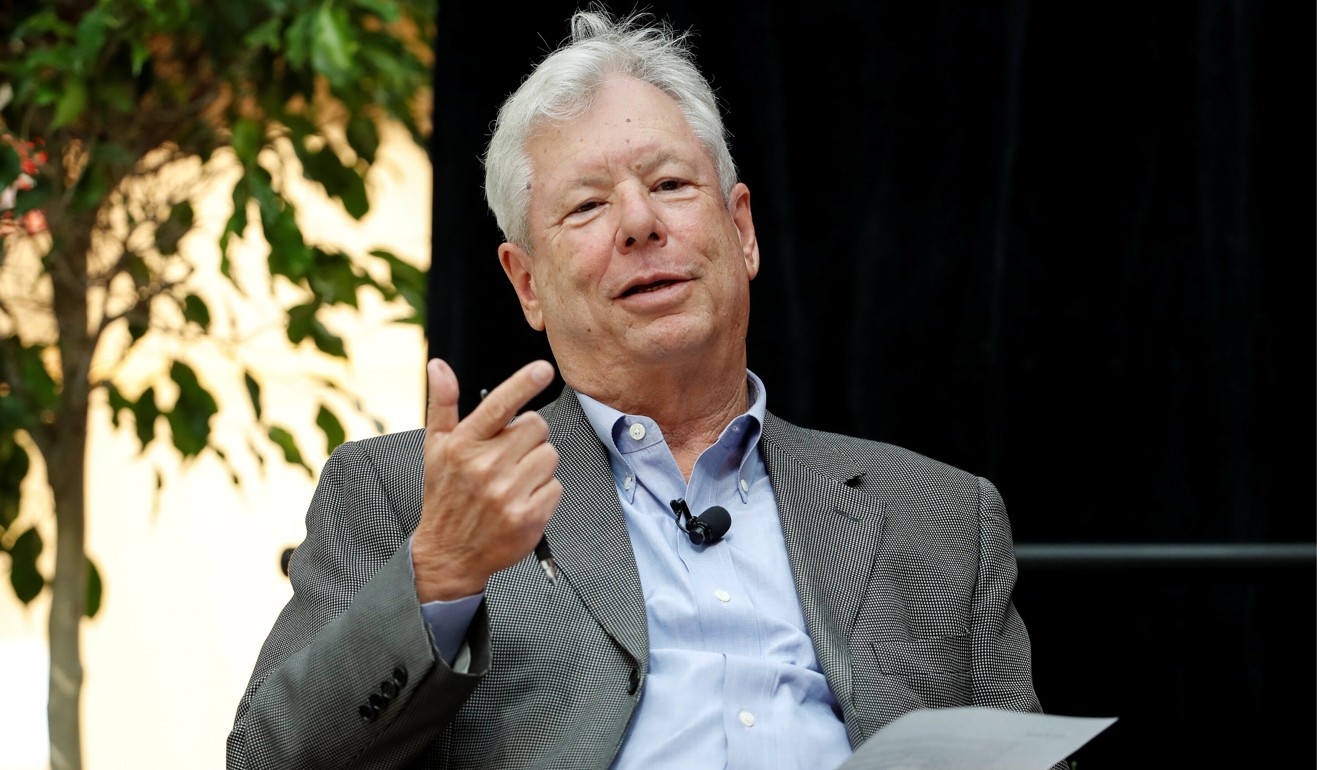
HR guru Laszlo Bock’s start-up Humu uses AI to help people be more human at work
- Ex-Google HR head Bock says electronic ‘nudges’ sent during the day like ‘praise colleague in meeting’ will improve the workplace
- The software would learn what is most effective over time
Google’s former head of its “people operations” has a new start-up, and one of its goals is a lofty one: to make software that helps managers and colleagues act more human.
Laszlo Bock left Google in 2016 after running its human resources shop for a decade, during which he racked up “best place to work” awards, built a data-driven operation known as “people analytics”, and wrote a bestselling book.
When work-life balance matters most, Hong Kong employers must adapt
He recently revealed new details for the first time about Humu, a start-up he co-founded with two other former Google executives that has raised US$40 million in funding.
The start-up’s software combines behavioural science and machine learning to nudge managers and employees toward behaviour change with time-based alerts. It acts like something of a digital personal coach, prodding managers to give employees a shout-out for helping their team, or to ask workers what they are looking forward to doing over the weekend.
Bock acknowledges that there is a paradox in needing an electronic nudge for such things to happen. “It’s definitely an irony,” he says.

Bock founded Humu with Wayne Crosby and Jessie Wisdom, who were former engineering and “people analytics” executives, respectively, at Google with him. The company’s software is based in part on the “nudge theory” made famous by Richard Thaler, the Nobel Prize-winning behavioural economist, as well as psychological and organisational behaviour research.
It takes in a variety of inputs – HR data, productivity information and personal surveys – to send out targeted emails, texts or messages to managers and employees to nudge them to take action in an effort to make work better.
Colleagues might, for example, get an alert to give co-workers credit at their next meeting (research has shown people value peer recognition even more than being called out by a supervisor). Managers might get a nudge to thank a team member in writing, with a link for drafting a thank-you email. Employees might get a message reminding them about three questions to ask their supervisor in one-on-one meetings.
What’s not totally clear yet is whether managers respond to it or will it be an email that comes into your inbox that managers ignore
Bock says these kinds of real-time nudges to multiple people are important for change.
“This is where traditional framing falls down,” Bock says. He explains that normally, employees might go individually to training sessions on negotiating, being a better manager or getting better at speaking up. “But then you go back to your work environment, and everyone’s the same. And your behaviour is not going to change because there’s nothing reinforcing it.”
Analysts who cover HR technology say such software is gaining interest from employers who want to making the squishy subject of “culture change” more tangible. They want to move beyond traditional employee “engagement” surveys or pulse feedback tools, which gather lots of data but do not necessarily offer answers for what to do about it.
“There are a million tools collecting information, but very few that do anything with it other than giving it to the human resources department,” says Josh Bersin, an industry analyst who studies workplace technology. “There’s this gap between understanding the data and knowing what to do with it. What [Humu] is doing is closing that loop.”

But as Brian Kropp, group vice-president of human resources at research firm Gartner, points out, one question is whether the alerts will really signal users to change their behaviour or just be seen as more noise.
“What’s not totally clear yet is whether managers respond to it or will it be an email that comes into your inbox that managers ignore,” Kropp says.
Bersin raises similar questions. He compares Humu to the nudges given by fitness or diet apps – something most people have become comfortable with – but worries the basic nature of some of the prompts, like reminding bosses to tell a story in a meeting (since narratives are effective), could turn some people off as too simple. Over time, he says, the nudges could get smarter as the software “learns” what is effective and what is not.
The weight of doing good versus making money was shifting. I’d always felt you could absolutely do both
Bock says that Humu will adapt to how people respond. If someone doesn’t respond to an email, say, they might get a Slack message or text message the next time. It will also learning which motivational techniques are effective or which actions are most relevant.
So far clients – which range from a 150-person start-up to a 65,000-strong financial services firm – typically show a 60 to 80 per cent response rate based on nudges, according to Humu’s data. The data also shows that nudges increase the likelihood of a behaviour by as much as 250 per cent.
Bock, who is 45, left Google in 2016 for a few reasons, he says. He wanted to have a broader impact, he was looking for new challenges after 10 years there, and culturally he thinks the company was changing. “The weight of doing good versus making money was shifting. I’d always felt you could absolutely do both,” he says.
One million Hongkongers could lose their job to AI in 20 years
We asked whether he wrestles with creating software for a problem that might be solved with just offering better coaching or installing better managers. Bock acknowledges the irony, pointing out that its mission is to “drive behavioural change with the power of people science, machine learning – and love”, and is using a technology solution to do that.
But “the other approach doesn’t work”, he says, noting that Gallup engagement surveys have not really changed in a decade. “Sometimes you have a good manager, sometimes you don’t. Sometimes you feel good at work, sometimes you don’t.”
Similarly, he believes the approach of “send people to business school, send people to training, [say] ‘I’m just going to do my best as a manager’” also doesn’t work. “So you need a different solution.”

